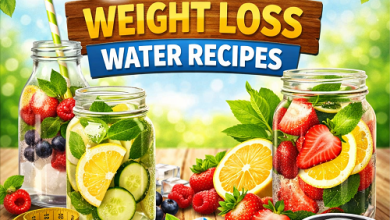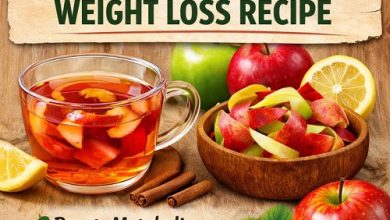What we get wrong about ultra-processed foods
Here’s the most important reason they’re to blame for obesity and disease.

Extremely processed foods are popular right now! They are now blaming carbohydrates for fat and disease, having overthrown them as the top dietary enemy in recent years.
Furthermore, what do you know? For the most part, they are to fault. This is the closest that diet-related common wisdom has ever come to being accurate.
Here’s the problem, though. The reasoning are generally flawed, despite the fact that the conclusion is correct. Furthermore, discussing inappropriate topics helps the food industry.
So let’s review the issues and try to refocus attention on the compelling arguments—arguments that don’t give the food business a pass on accountability—by making the necessary corrections.
Both the proof that UPFs are harmful and the reasoning behind their negative effects are flawed in these incorrect arguments.
Let us begin with the evidence, which is derived almost entirely from epidemiological data – population studies that follow individuals over many years and establish a connection between health outcomes and their self-reported diet.
It is almost always the case that those who consume large amounts of UVFs are less fortunate than those who do not. After reviewing the available data, the authors of a recent BMJ report discovered that UPFs were linked to 32 adverse outcomes, such as diabetes, heart disease, obesity, and all-cause mortality. wheezing as well.
There is a lot of evidence in this area, and everything I’ve seen seems to support one another. It’s weak, though, for two reasons. The majority of epidemiological nutrition evidence is weak for the same reason, which is the first: Due to a combination of design flaws and people’s general incapacity to recall and report what they eat, the data does not fully reflect peoples’ diets.
However, the second issue is exclusive to the UPF controversy: the research’ questionnaires do not enquire about the participants’ level of processing.
Thus, in order to establish a link between UPFs and health, the researchers must first define the term and then apply it to a list of foods that lacks processing-related information.
A article was written about the subject by one group of scholars who worked on it. They attempted to retrofit the questionnaire items into the NOVA classifications, which classify unprocessed foods as Category 1 and UPFs as Category 4, with 2 and 3 falling somewhere in between.
It’s challenging! While “other canned fruit” is only rated a 3, tinned peaches are rated a 4. Crackers are a 4, whereas crispbreads are a 3. Homemade soup rates a one, but if you add a bouillon cube, it shoots up to a four. Mustard is a three, but salsa is a four. Most baked goods, including bagels, rolls, brownies, and muffins, rate a 4, but who’s to say you didn’t create them at home without using a bouillon cube?
Large-scale population studies are just not well-suited to provide us with much information regarding the relationship, if any, between UPFs and health. There most likely is, but the question remains as to why.
The response is typically “processing,” which brings us to the second category of weak arguments. The idea is that our bodies’ processing of this food causes our metabolism to go crazy, whether it’s due to unpronounceable substances or an industrial production process that pulverises, emulsifies, or reconfigures.
The issue is that this theory is not really supported by any data. Refined carbs, especially when finely ground, elevate blood sugar and induce insulin spikes. Yes, food that has been ground up gets absorbed more quickly. Although no one believes that to be ideal (which is why whole grains are emphasised in nutrition advice), low-carb diets would perform far better than they do if it were the main cause of obesity and disease.
Furthermore, several substances included in processed food have the potential to impact the microbiota. The issue is that our understanding of how changes in our microbiome impact our macrobiome—that is, each of us—is still incomplete. Even if it’s a space worth seeing, nothing that we now know can account for the myriad health issues that individuals attribute to UPFs.
However, if we go beyond metabolism, there’s still another reason. It is well supported by data and consistent with our understanding of processed foods. That’s the reason I firmly believe processed foods are the primary cause of a wide range of health problems. Perhaps as many as thirty-two.
Processing is merely an instrument. Since food corporations are in the business of selling food, they have made use of this technique to provide us with an infinite selection of reasonably priced food that we enjoy. They have assured that it is always in front of us, needs little to no preparation, and is as enticing as billions of dollars and thousands of food scientists can make it. They have persistently sold and advertised it. Their main goal has been to convince us to buy as much of it as possible, and they have done all of this with virtually no consideration for its nutritional value.
They’ve been successful, too. The fact that UPFs encourage overeating is the only issue with them. Furthermore, the health risk is not from preservatives but rather from weight gain.
“You’re merely speculating!” I hear you utter. “This is not supported by science!” I hear you utter. You often mention that to me on social media, so I know you’re saying it.
However, you are mistaken. This is supported by a large body of research; it’s simply not the research you’re used to looking at to determine UPFs. It’s the study of how humans respond to food and food cues in our surroundings, and the results consistently demonstrate that we eat more when food is tasty, affordable, easy to get, and available.
Okay, that makes sense.
The obvious study cascade begins with the fact that we eat more of the foods we enjoy. And a tonne of research has been done on the steps the food business takes to make sure they’re producing foods that we really, really appreciate. If, for some inexplicable reason, you don’t believe this, read “Salt Sugar Fat,” written by Michael Moss. You’ll come to understand.
In addition, we tend to consume more when there is variety—just take a peek around.
We consume a greater quantity of high-calorie foods, with ultra-processed goods having a higher calorie content than less-processed items. (Research on this topic by Barbara Rolls, a professor at Penn State, has been particularly interesting; my favourite Wheaties experiment had her breaking cereal to change the energy density.) Kevin Hall of the National Institutes of Health conducted the now-famous trial on ultra-processed foods. The subjects consumed almost 500 more calories per day of the ultra-processed food, which was higher in calories than the least processed alternative. (Of course, we cannot say with certainty that the density was the cause, but it is a strong possibility.)
We consume more low-cost food, and the lowest-calorie, highly processed items are among the most popular. Additionally, the food industry thrives on the fact that we consume more when food is readily available. Not only does food itself determine intake, but we also eat more when we are exposed to cues related to food, such as images, movies, advertisements, and scents.
The prosecutor would be quite concerned that the majority of the evidence is circumstantial if there were a “CSI: Nutrition.” Indeed, it is! However, it is also highly consistent and aligns with the epidemiological data as well as our knowledge of how and why humans consume. It is the clearest, most basic explanation that makes sense of all the data at our disposal.
The food business is likewise placed in a weaker position by this reasoning. Arguing over methods and additives puts the industry in a stronger position because it draws attention to the significant amount of evidence supporting safety as well as the flaws in the epidemiological study. And there will be a strong case for the industry.
However, the sector has nothing to stand on if overconsumption is the true issue. Food corporations naturally want to sell as much of their product as they can by making it enticing! It’s their duty as fiduciaries.
However, I anticipate that there will be a continuous flow of studies about the impact of chemicals in processed meals on our hormones and microbiome. And it’s beneficial to comprehend those points! However, those are deck chairs. Iceberg, straight ahead!




